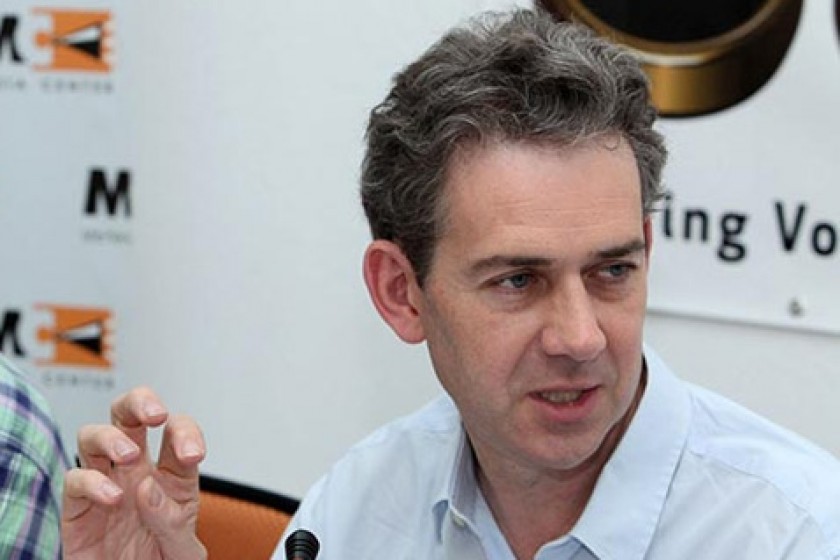
Thomas de Waal: "It was more important for Putin to stop Armenia signing an Association Agreement than..."
Interview with Thomas de Waal who is a senior associate at the Carnegie Endowment, specializing primarily in the South Caucasus region comprising Armenia, Azerbaijan, and Georgia and their breakaway territories as well as the wider Black Sea region.
-Mr. de Waal, what took place in Vilnius? What did Armenia get out of that summit?
-Obviously, Armenia got much less out of the summit than it had expected a few months before. It was important that an agreement was signed with the EU on visa liberalization, which will have a positive impact for thousands of ordinary Armenians. But there was no initialing of an Association Agreement or start of talks on a Deep and Comprehensive Free Trade Area. I am not sure that everyone in the Armenian government had understood before how these two are closely linked. There had been hopes that some of the political parts of the Association Agreement could be extracted and preserved, but that proved to be impossible.
-What was the significance of the joint statement of Armenia and the EU?
-The joint statement in Vilnius kept the door open for Armenian-EU relations in the future, while making it clear that due to the euphemistically worked “new international commitments” that Yerevan had made with Moscow, negotiations on what had already been agreed would not proceed. It was important in that it hinted that the decision Armenia had made over the Customs Agreement was made under pressure.
-Russian President Putin arrived in Armenia on December 2. Some observers say the visit was to strengthen military ties between the two countries. What consequences will the visit have in this regard?
President Putin’s visit was obviously intended to reinforce the decision made by President Sargsyan in September to join the Customs Union and to demonstrate Russian power and influence in the Caucasus. It was therefore symbolic that Putin travelled first to Gyumri and visited the Russian military base and only then to Yerevan.
For the Armenian side, the relationship with Russia is primarily about security. The government seeks a more balanced foreign policy and Armenia now trades more with the European Union than it does with Russia. Clearly, the decision to give up on three years of intense negotiations with the EU and opt for the Customs Union was taken under pressure and because of the message that Armenia might lose its preferential security arrangement with Moscow and Russia could sell more weapons to Azerbaijan.
However, I believe that, with regard to the Customs Union decision, there is more symbolism than substance here. Armenia is a very small economy and it has no common border with Russia. It was more important for Putin to stop Armenia signing an Association Agreement and to send a message to Ukraine than it was to get a real economic deal with Armenia. And I believe there are many in Yerevan who are hoping that the Customs Union project will collapse and they can eventually and quietly get back on the EU path.
-Taking into account the Karabakh conflict, what will change in the region by Armenia joining the Customs Union?
-The new Armenian-Russian agreement effectively preserves the status quo, it does not create a new one. Armenia is reassured of its security alliance with Russia, but Putin also wants to maintain a business and political relationship with Azerbaijan, so he will never fully support one side or the other. Armenia will also work hard to keep its relations with the United States, the EU and NATO alive. The main contours of the unresolved conflict and the reasons for its non-resolution remain the same. As the French say, “the more it changes, the more it stays the same.”
Photo: Photolure
 Videos
Videos Photos
Photos
Comments (2)
Write a comment